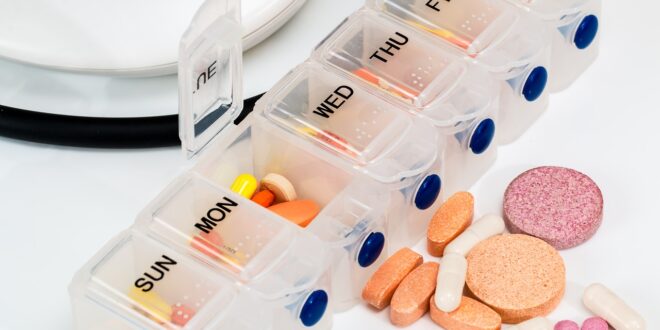With the illicit use of cannabis in several US states, cannabidiol has gained widespread attention for its potential to ease symptoms of health ailments. People shop online at CBD.market to buy CBD capsules, topicals, and other CBD products to get their therapeutic effects. But does it interact with other medications?
Cannabidiol, abbreviated as CBD, is the primary non-psychoactive cannabinoid, meaning it doesn’t cause head-high effects associated with marijuana. The cannabis plant contains more than 113 cannabinoids; among them, CBD & THC are more prominent.
Research is ongoing to know how effective CBD is. However, research to date shows that CBD is a well-tolerated and safe cannabinoid to use. Unlike psychoactive THC, CBD is non-psychedelic and non-toxic. Still, there is a big caveat, does CBD have the potential to interact with medications.
Before trying CBD, it is crucial to talk with a physician about the possible drug-drug interaction. Let us have a closer look at why this conversation matters.
Table of Contents
Drug Metabolism & Cytochrome P450 Enzymes
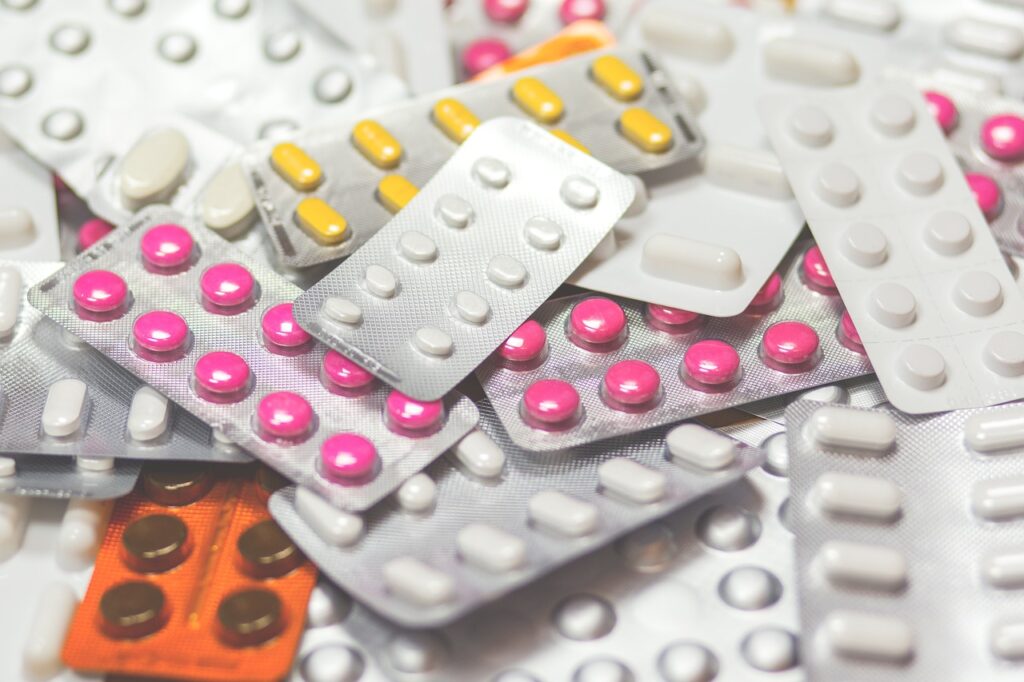
Metabolism is the process in which the body breaks down and uses different medications and other substances. It happens in the gut and liver as the first-pass metabolism. Metabolism is under the control of enzymes that transform these compounds into metabolites. These metabolites act as fuel for cellular processes and the building block of tissues.
Drug metabolism refers to the rate at which the body breaks down medications and other therapeutic compounds. The ingested CBD passes through the digestive system and liver, where the enzymes break it down, after which it circulates in the bloodstream.
Apart from the breakdown of compounds into metabolites, a family of Cytochrome P450 enzymes detoxifies and excrete the foreign drugs. However, some medications affect CYP450 enzymes by slowing or speeding up the drug metabolism. The change in metabolic rate can alter how your body processes the medication and supplements you take.
Cytochrome P450 Enzymes
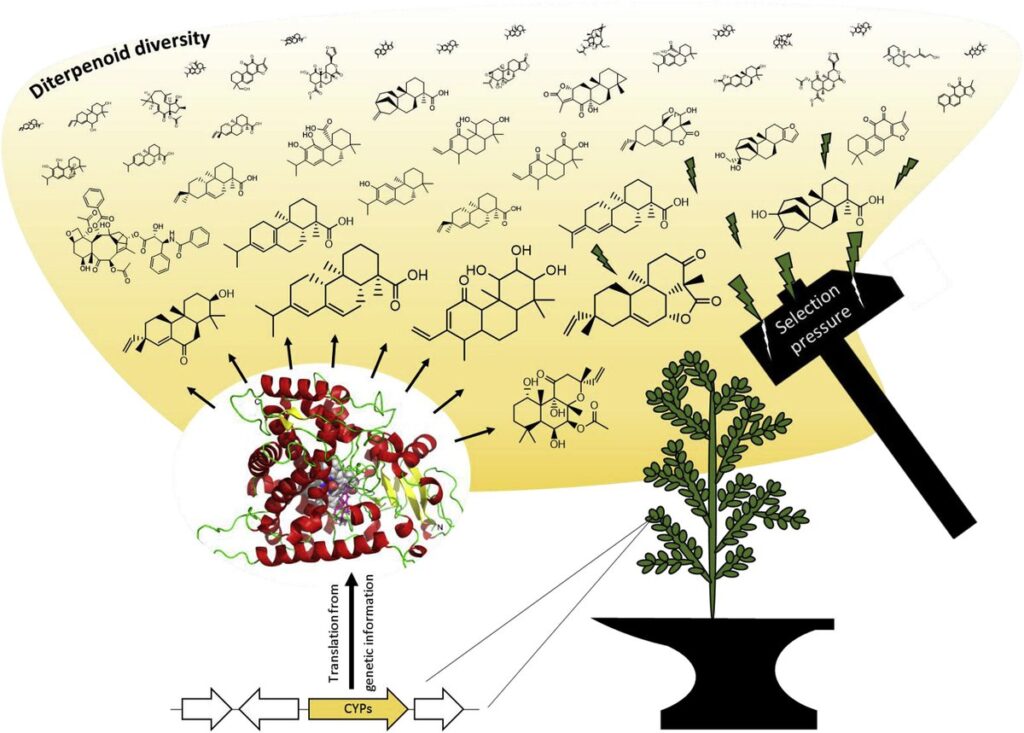
The CYP450 is a family of enzymes that is responsible for metabolizing cannabinoids – CBD. CBD interacts with another member of the CYP450 enzyme family, such as CYP3A4 that does drug metabolism.
CBD may inhibit the CYP3A4 enzymes, and it starts working effectively to break down the medications. The reverse can happen, too. Some medications may inhibit the activity of the CYP3A4 enzyme.
The extent to which CBD acts as a competitive inhibitor depends on its ingestion methods, individual unique physiology, and type of CBD product. All these factors determine how tightly CBD binds with the active site of metabolic enzymes.
By slowing down how the body metabolizes these drugs, CBD preserves the medication’s durability and prolongs its presence in the body. These elevated concentrations can cause unwanted adverse effects, such as increased bleeding or suppressed immune system.
Trying CBD Safely While Taking Medications
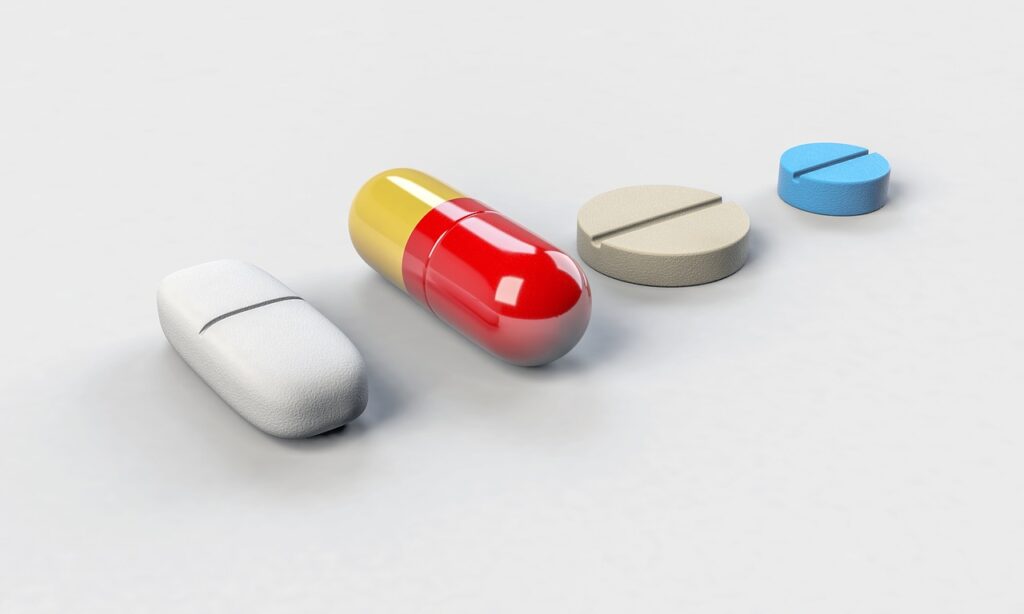
If you are willing to try CBD as an add-on therapy to ease symptoms of certain health conditions, talk to your doctor first. The doctor will prescribe the accurate dosage, CBD ingestion methods, and its possible interaction with other medications. Your doctor may examine your blood plasma level for some situations and recommend transdermal CBD products that don’t enter the bloodstream.
CBD Drug Interaction – Grapefruit Warning
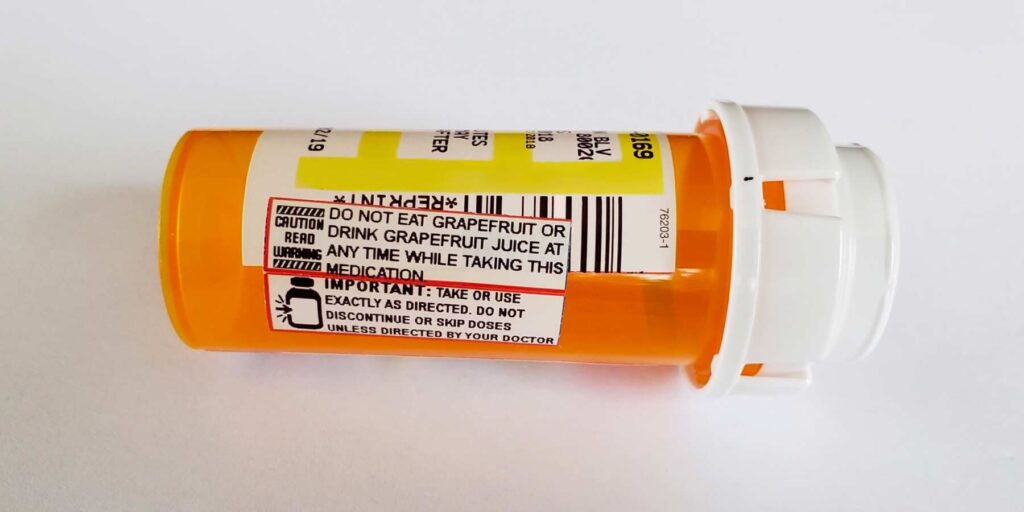
Studies are ongoing on the possible interaction of CBD with other medications. However, the rule of thumb can help consumers in the meantime by avoiding it if your medication has a grapefruit warning.
Grapefruit warning means people taking it should avoid grapefruit or grapefruit juice.
According to FDA – Food & Drug Administration, consuming grapefruit while taking these medications can lead to a higher level of them in the bloodstream. It may lead to overdose and adverse effects.
The chemicals in the grapefruits Furanocoumarins inhibit the activity of CYP3A4 enzymes. These chemicals act similar to CBD, which is why some medications come with grapefruit warning.
Medications with grapefruit warning:
- Antibiotics
- Antimicrobials
- Anticancer medications
- Antihistamines
- Antiepileptic drugs
- Blood pressure medication
- Blood thinners
- Cholesterol medication
- Corticosteroids
- Erectile disfunction medications
- GI medication
- Heart rhythm medications
- Immunosuppressants
- Pain medications
- Prostrates medications
If you are taking any medication, make sure to consult with your doctor. Before adding CBD into your life regime, be assured it doesn’t cause any adverse effects.
Some small clinical trials show that children with epilepsy were given both clobazam and CBD. Researchers found elevated levels of clobazam in these children. Taking CBD with clobazam is safe, but make sure to monitor the medication level during treatment.
However, more research is essential to determine the severity of CBD interaction with different medications.
CBD Oil & Antibiotics
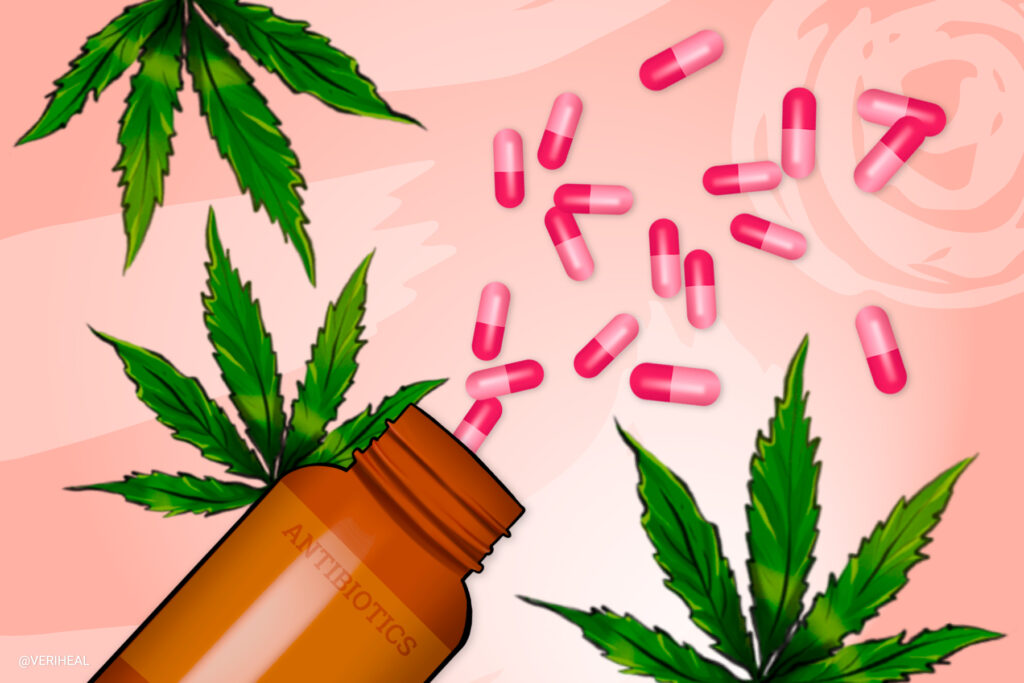
There is a potential risk when combining CBD oil and antibiotics as both are metabolized in the liver. The CYP450 liver enzymes are responsible for breaking down toxic compounds, including over 60% of any over-the-counter or prescription drugs consumed. Cannabidiol oil can inhibit the activity of Cytochrome P450 enzymes that leads to overall increased possession time of medications.
Safety & Side Effects
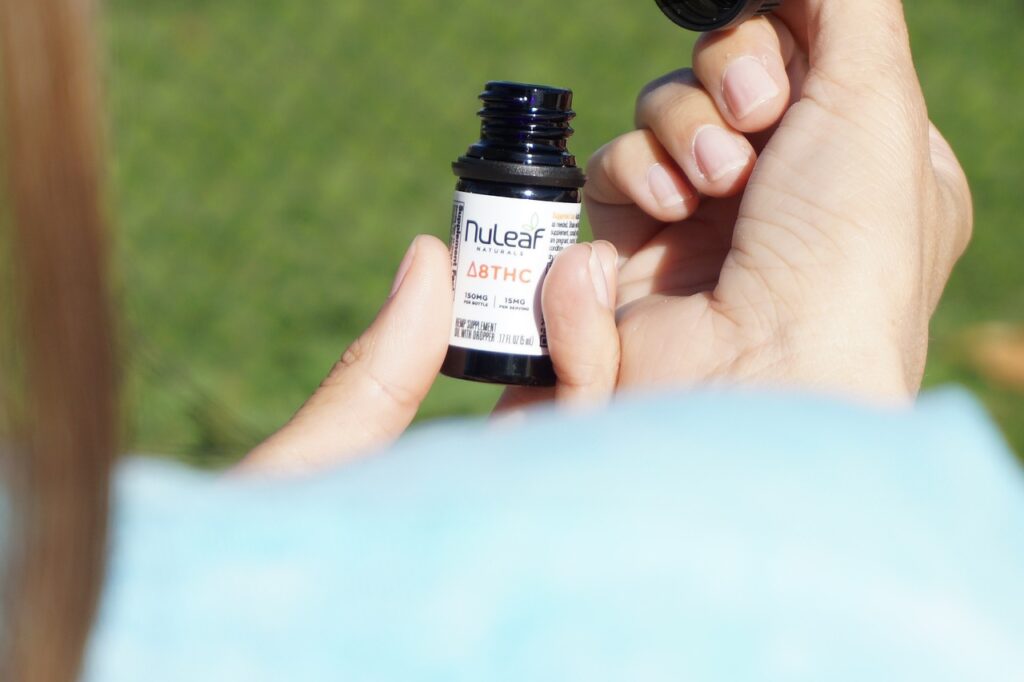
You can safely use cannabinoids under the supervision of your doctor. The doctor will monitor your blood plasma level to determine the functioning of your liver. If you are taking CBD with any medication, keep an eye on the potential changes caused by medication and CBD.
Increased medications side effects:
- Drowsiness
- Sedation
- Nausea
Decreased medication side effects:
- Breakthrough seizures
Some adverse effects of CBD:
- Fatigue
- Change in bodyweight
- Diarrhea
Final Verdict
If you have any health condition and are taking medications, make sure to consult your healthcare provider before using CBD. Also, don’t stop your prescription medications unless you go ahead with your doctor.
Medications that come with a grapefruit warning are likely to interact with CBD. However, even if you take one of these, your doctor might be able to formulate a plan that works for you through close monitoring of medication levels in your system. That way, you can use both your prescription and CBD as a therapy.
The safety profile of CBD shows that it is safe and rarely produces side effects, but make sure to consume it with care.
 World Magazine 2024
World Magazine 2024
